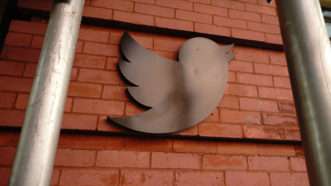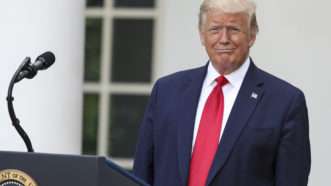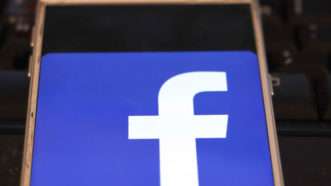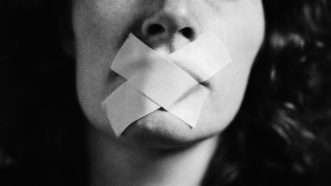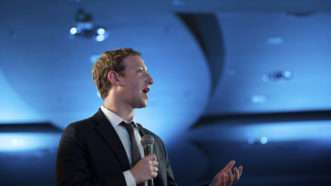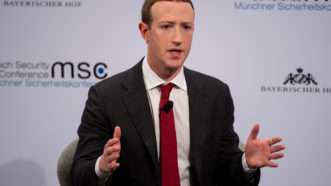Free Speech
Trump's Executive Order on Twitter Is a Total Mess
Plus: the weird new battle lines on warrantless surveillance, more CDC incompetence, Minneapolis on fire, and more…
Twitter Fact-Checks Trump. Trump Threatens To Shut Down Twitter.
Plus: Police brutality protest in Minnesota ends in more police brutality, and more...
"The Question Is Whether Delta [Airlines] Can Bring the Court a Dispute to Adjudicate in Secret"
"The answer to that question is clear."
Right of Access to Court Hearings During Epidemics
Court hearings may be physically closed to the public for health reasons, if the public can watch them via video.
$1M+ Award for Law Professor Libeled by Ex-Girlfriend's Rape Accusation
"The Court's belief in the veracity of Wright's testimony dwindled while the trial progressed, as evidence of her inconsistent and questionable conduct was revealed piece by piece.... She lied about her advanced degrees. She signed e-mails as Dr. Wright when she is not a doctor. Her testimony and medical records conflicted time and time again ...."
A Huge Blow to Hongkongers' Freedoms
New legislation proposed in Beijing signals the likely end of the "one country, two systems" policy that has allowed Hong Kong to flourish.
Requiring Creation of Computer Code Doesn't Violate the First Amendment
Seems right to me, at least as a general matter.
N.C. Trial Court Holds Preliminary Injunctions Against Alleged Libel Are Unconstitutional
But permanent injunctions after a full trial on the merits might be a different story.
Do Tattoo Shops Have a First Amendment Right To Remain Open During a Pandemic?
The idea is not so far-fetched.
Supreme Court Won't Hear Suit Saying Facebook Helped With Hamas Attack
Hamas "used and relied on" Facebook "as among its most important tools to facilitate and carry out its terrorist activity," the plaintiffs claimed.
Court in Devin Nunes Libel Lawsuit: "The Tedious and Laborious Exercise …
of dissecting each of the sixteen bullet points illustrates the deficiency of plaintiffs’ complaint."
Anti-Porn Groups Target Websites' Ability to Accept Credit Card Payments
We've seen this before...
Court Strikes Down Injunction Banning Divorcing Parents from Disparaging Each Other
An important decision from the Massachusetts high court.
Supreme Court Can Put a Stop to Rule Compelling Anti-Prostitution Speech From Anti-HIV/AIDS Groups
The anti-prostitution pledge is unconstitutional when applied to U.S. nonprofits. But the feds say it's still OK to compel speech from these groups' foreign affiliates.
New Facebook Oversight Board Will Handle Tricky Moderation, but Will It Value Free Speech?
Mark Zuckerberg can't please the anti-tech populists on the left and the right, no matter what he does.
Josh Duggar ("19 Kids and Counting") Lawsuit Thrown Out
Josh Duggar had sued over the government's releasing records of his juvenile investigation.
"Clear, Compelling, Written Language Is Required to Waive" Free Speech Rights
An important First Amendment holding in a factually fascinating case, which involves an alleged breach of contract, a World War II Medal of Honor, a dispute over a history book, and a discussion of anti-libel injunctions.
District Court in Ninth Circuit Issues Anti-Libel Injunction
But other courts in the Ninth Circuit have categorically said that such injunctions are unconstitutional—the law remains quite unclear.
"Well, We Have Reviewed That Order, Too"
Not a great thing to see in an appellate opinion, if you claimed that reviewing a court order shows that you should win.
North Carolina Supreme Court: Flipping Off Cop Did Not Justify Traffic Stop
A state trooper believed a man driving by and flipping the bird at the cops constituted disorderly conduct. (It didn't.)
Woman Banned from "Making Any … Public Allegations Against" Ex, a Police Sergeant, "on Social Media"
We've filed a friend-of-the-court brief asking the Tennessee Supreme Court to review the case.
The National Labor Relations Board Wants To Punish a Conservative Publisher for a Joke About Unions
The Federalist's Ben Domenech is fighting the government in court.
Fifth Circuit Anti-BDS Lawsuit Dismissed as Moot
The Eighth Circuit lawsuit remains pending.
People Stuck at Home Are Making and Watching Porn. Everybody Panic!
Anti-porn crusaders get their panties in a twist about a uptick in porn consumption during COVID-19.
Prisoner in Ohio Halfway House Complains About Lack of COVID-19 Preparations. He's Sent Back to Prison. Now Ohio Prisons are Exploding with COVID-19.
While his own prison is not yet facing a huge problem, Brandon Baxter had a prescient complaint for which he seems to be being punished.
"Car Parades, Cruises, and Joyriding" "Are NOT Prohibited," at Least in Osage County, Kansas
And they would, I think, be peaceable assembly protected by the First Amendment, even in a time of epidemic.
Teenager Threatened with Arrest for Posting About Being Sick with Covid-19
She thinks she was -- but the police thought she wasn't (based on a negative test).
Attempt to Vanish (Cubed) Post Critical of the Sandy Hook Hoax Libel Judgment
"Anything you can do, I can do meta."
Facebook Removes Coronavirus Misinformation but Will Only Ban Lockdown Protests If They Violate Social Distancing
"Unless government prohibits the event during this time, we allow it to be organized on Facebook," a company spokesperson tells Reason.
Students Don't "Shed Their … Freedom of Speech … at the Schoolhouse Gate" …
... they apparently shed it well before the schoolhouse gate.
D.C. High Court Strikes Down Order Temporarily Blocking Facebook from Disclosing Existence of Subpoena
The subpoena had been issued on behalf of a criminal defendant, who wants to buttress his self-defense argument by getting a copy of an expired Instagram Story that had been sent to him by the alleged victim.
Five Years in Prison for Posting Facebook Videos Accusing Pastor of Sexual Misconduct
The Mississippi Court of Appeals just overturned the conviction, and struck down the underlying statute, which banned posting messages "whether truthful or untruthful" "for the purpose of causing injury to any person."
Woman Mocked for Being Sexually Attracted to a Chandelier Loses Claim
before UK independent press standards tribunal.

